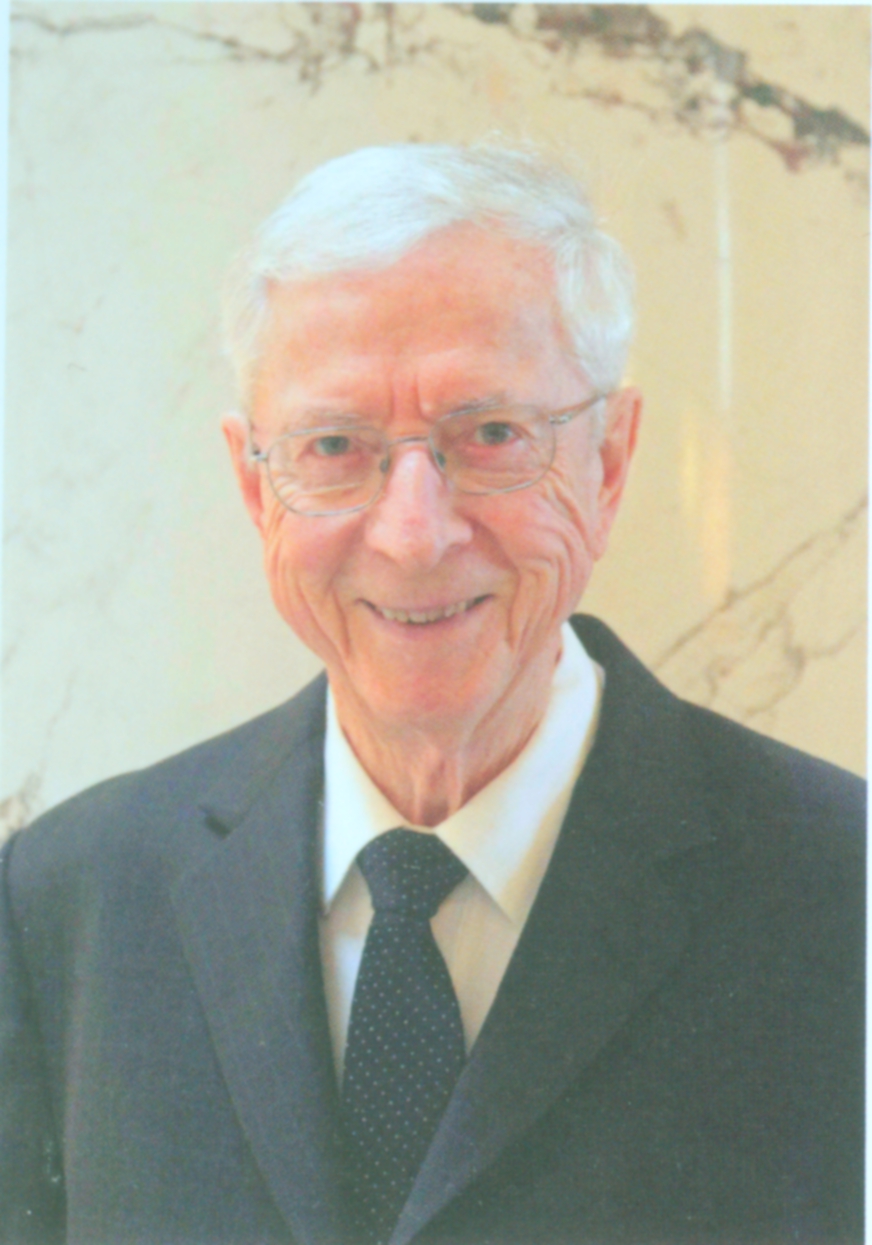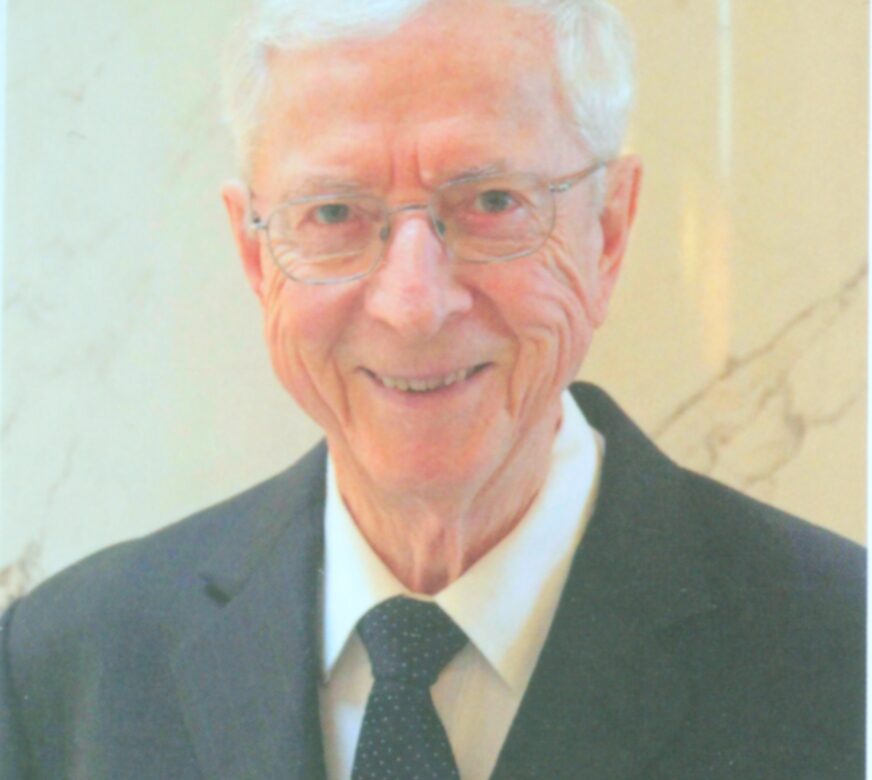Vatican II Social Justice Activities
Remi De Roo
Volume 26 Issue 10, 11 & 12 | Posted: December 22, 2012

 When I returned to Vancouver Island after the exhilarating experience of the Council, my work rapidly branched into two streams: one involved my experiences on Vancouver Island itself; the other was national and international. Sometimes they overlapped.
When I returned to Vancouver Island after the exhilarating experience of the Council, my work rapidly branched into two streams: one involved my experiences on Vancouver Island itself; the other was national and international. Sometimes they overlapped.
 When I returned to Vancouver Island after the exhilarating experience of the Council, my work rapidly branched into two streams: one involved my experiences on Vancouver Island itself; the other was national and international. Sometimes they overlapped.
When I returned to Vancouver Island after the exhilarating experience of the Council, my work rapidly branched into two streams: one involved my experiences on Vancouver Island itself; the other was national and international. Sometimes they overlapped.
Participants in the Council, particularly active Council Fathers, were much in demand as speakers, provided they were willing to endure the grinding regime of constant travel and public appearances. I became one of those itinerants, criss-crossing North America from Arizona to Alaska and from Victoria to St. John’s. In reviewing the piles of documents and lecture notes that I have accumulated over 50 years, I have chosen to focus on those themes that gradually asserted themselves under unforeseen circumstances.
An almost endless list emerged: biblical spirituality, baptismal priesthood, religious education, human rights, women and the institutional Church, a theology of the Holy Spirit, adult maturity and progress in prayer, environmental concerns, the role of human beings in the cosmos, the interplay of religion and economics, “Free Trade” and global disparities, a pedagogy for social transformation, solidarity and Aboriginal rights, the role of Catholic hospitals, ecumenism and interchurch relations, faith in action and social justice, the preferential option for the poor, science and religion in dialogue, biblical characters and the Enneagram, peace, nuclear weapons and morality, the nature and exercise of authority, work and humanization, the political role of the Church, the cost of development, ecclesial developments in Latin America, China and Africa – the list of things dear to me seemed to expand indefinitely. …
On the National Stage
One of the most memorable situations where I was called upon to provide support to and solidarity with First Nations people dealt with energy development and the arena of reconciliation. The Berger Commission (also known as the Mackenzie Valley Pipeline Inquiry), led by Judge Thomas Berger, held part of its hearings near Fort Simpson in the mid-1970s. Local Aboriginals were concerned that building an oil pipeline might pose a threat both to the environment and to their land claims. I attended as a member of an ecumenical support group representing a coalition of mainline Christian churches, including the Canadian Conference of Catholic Bishops (CCCB). …
Debate about the proposed pipeline occasioned the most intense day-long cross-examination I have ever endured. On April 18, 1977, I appeared before the National Energy Board in Ottawa, together with a team of four colleagues and representatives of other coalition members. Among other things, as mentioned earlier, we were calling for a moratorium on the building of the proposed Mackenzie Valley pipeline in the north.
We had submitted a brief in which our Social Affairs Commission stated in the name of the Roman Catholic bishops of Canada that as a people and a nation, we needed to take time to deal with some disturbing questions. These pertained to the setting of energy policy for the future and the impact of proposed developments on the lives and future of the Native peoples of Canada, as well as others in the north and south of the country. Under current circumstances, they were at the mercy of corporate decisions made without adequate and informed input from them.
Typical of the prevailing atmosphere at that time was the impassioned confrontation I endured from Mr. Pierre Genest, a lawyer for Canadian Arctic Gas Pipelines Ltd. Our lengthy exchange focused on the question of how we arrived at our moral or ethical judgments and whether these changed as facts evolved. The positive side was that this conversation provided an opportunity for our team to expound the basic Gospel principles on which we should be building our future, as well as the moral values pertinent to these and similar situations.
Principles endure, but their application to specific issues may require a reinterpretation to remain understandable as cultures evolve and even the meaning of certain terms changes. The Berger Commission decided to recommend a moratorium on the development of the Mackenzie Valley Pipeline. I was heartened that the Canadian bishops played a key role in this outcome.
The Bishops and the Economy
Other issues were also of major significance. One that generated an unforeseen magnitude of press coverage was the involvement of bishops in expressing their views on the Canadian economy. On New Year’s Day in 1983, the CCCB’s Social Affairs Commission, of which I was co-chair, published a declaration entitled “Ethical Reflections on the Economic Crisis.” It was a time of social upheaval, with the Canadian government under pressure to bring meaningful solutions to problems that were frequently attributed to inflation. The bishops had watched these developments closely and were convinced that unemployment rather than inflation was the main culprit.
In 1980, Pope John Paul II had published Laborem Exercens (Through the practice of work), a magnificent encyclical on the topic of work. Among many other reflections, he elaborated on the nature of work as a humanizing factor. This deeper and broader philosophical and ethical study stood in sharp contrast with popular notions of work as “something you do to make money so you don’t have to work.”
Our statement applied similar principles to the Canadian scene. Our view was that human beings are co-creators with God. Jesus once declared, “My Father is always working and I too am still working” (John 5.17). Vatican II also sees our liturgy itself as divine work.
“Ethical Reflections on the Economic Crisis” unleashed a storm of publicity. It held front-page attention for several weeks, and set the tone for other declarations. Many people came to consider the Catholic bishops as the “conscience of Canada.”
Tony Clarke, outstanding Director of Social Policy, together with the rest of the valiant staff of the CCCB Social Affairs Office, were overwhelmed with work. Bishop Adolphe Proulx, co-chair of the Social Affairs Commission, and I were in constant demand for conferences on this topic and related issues.
Our declaration was reported on around the world and was eventually translated into many languages. Its emphasis was on the vital ethical dimensions of economic discourse; the priority of people over material things; the dignity of working people, made in the image of God and called to be ‘co-creators’, and hence the inherent dignity and immeasurable value of human work; and the priority of labour over capital and technology, not its “commodification.” Due to the universal purpose of created things, there is a “social mortgage” on private property and on the means of production, because every human being has a right to the basic necessities and a decent income, and no one citizen has an absolute claim on natural resources. It follows that the needs of the poor must have priority over the wants of the rich. This must lead to a society based on compassion and justice rather than competition, and calls for authentic and lasting structural change.
This notion of change eventually required further attention. The members of the Social Affairs Commission turned their attention to the process whereby change takes place. We gradually developed a “methodology” for social change. To begin, we are called to establish contact with marginalized people and offer them our solidarity. Together we would verify the reality of their situation and engage in social analysis in the light of Gospel principles. We would then be in a position to support the poor, the marginalized and the oppressed in their cause, as they discern the appropriate methods for responding. Our role would be to help them develop their latent power, working in solidarity with them as they discover their own creativity. A compilation of the results, whether positive or negative, then brings about an assessment or evaluation, which helps to launch the next phase.
The entire process may be compared to a spiral rising and opening up to new movement. The 1971 Synod of Bishops in Rome declared that action on behalf of justice was a constitutive dimension of the proclamation of the Gospel. This represents, in my view, a practical application of what came to be known after Vatican II as the “preferential option for the poor.” This new type of social engagement was first developed in Latin America as part of liberation theology. Liberation theology is not a subversive ideology, as some uninformed peop le have claimed, but a living force, inspired by the Bible, which shows us that God brings about salvation with and through the poor. The history of salvation is not written by the powerful and the rich, but rather by the helpless who put their trust in divine assistance under the movement of the Spirit of Love.
le have claimed, but a living force, inspired by the Bible, which shows us that God brings about salvation with and through the poor. The history of salvation is not written by the powerful and the rich, but rather by the helpless who put their trust in divine assistance under the movement of the Spirit of Love.
Published by Novalis
Available from Sorensen Books
Remi De Roo

